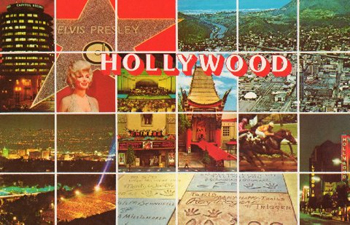|
Faulkner & HollywoodBy D.E. Fredd In 1935 Mascot Studios become part of Republic Pictures. Billy Flynn
was Mascot's hot property when it came to churning out those "cliffhanger"
serials that were box office gold. He figured the buyout would put him
in the driver's seat, but Republic's head man, Arnie Shrenk, low-balled
Billy in a take it or leave it deal. Just as things started to look grim, Twentieth Century Fox rode up
like the Seventh Cavalry and offered Billy and his production crew a
fat contract of what was decidedly not chopped chicken liver. Fox wanted
a piece of the serial business if only to combat Republic and Universal
and, next to Will Witney and Jon English, Billy was the best around
to leverage such a move. Where Billy went I wasn't far behind. My main asset was that he was
sweet on my big sister Rose so he always found errands for her twenty-year-old
kid brother to run. As it turned out Fox really didn't have any projects
for Billy. All they wanted was to keep him away from Republic, like
the New York Giants overpaying a player to keep him away from the Brooklyn
Dodgers. Solly Weinstein was running Fox's production at the time. He
thought the studio was too classy for Saturday matinee serials, so he
assigned Billy to some "B" pictures with the idea of moving
him to features if he earned his stripes. The real problem then became what to do with me. I wasn't working for
Billy as such. In the old days I used to get lunches, pick up the trade
papers and drive the gang around when they were too pie-eyed to piss
standing up. But Fox had their own cafeteria and stores. It was a small
city. Wherever Weinstein went a bevy of underlings followed him, scratching
notes as he barked his way around the lot like a czar checking on his
serfs. It finally boiled down to no job at all or be Weinstein's full
time errand boy. Did I want the electric chair or an old-fashioned noose?
At the outset I washed and polished Solly's car several times a day,
just so, when he looked out the window, he'd see me doing something.
If it rained, I sat in the driver's seat and read, trying to educate
myself on how to write for the picture business. There were scripts
Billy had cast off, or others that my old gang had written and wanted
some opinions about. Then the waiting would abruptly end, and I'd be
given a dozen jobs at once, each in a different part of town. When you worked for Solly you got used to two things: whatever you
did was always wrong; the second was being screamed at and humiliated
for screwing up. The first few weeks almost drove me to tears —
or worse, to slug the fat bastard — but Gladys Pinzler, Solly's
receptionist/secretary, got me through it. She was thirty-five, a little weather-beaten — especially around
the mouth and eyes — but a great lower body, dancer's legs, curved
and trim. She'd had a few bit parts some years ago, but saw the theatrical
handwriting on the wall and went to business school at night. She made
good money, but, as she told me a little too confidentially, "was
always bending over backwards as well as inventing other positions to
keep Solly happy." One morning I came back from Braverman's with a dozen poppy seed bagels.
Solly went up one side of me and down the other, because I didn't toss
his name around, and thereby lost out on the baker's dozen and celebrity
discount. I was called a Mick Irish, goy, asshole, and a string of other
things in Yiddish until Gladys interceded to say that she had just called
Braverman's, and if I would run back over, they'd right the wrong. On
my way out she slipped me a couple bucks, telling me to pick up some
lox, whitefish and cream cheese and pretend it was part of the store's
apology. So, with Gladys's help, I made it through each day working for Solly.
She had a gallows sense of humor, "If you don't laugh, kid, you'll
end up taking the gas pipe." We worked out a set of hand signals
concerning Solly's temperament, which was directly linked to his sexual
activity. He was somewhat approachable after his hormonal needs had
been serviced. But, if he went too long without release, heads were
bound to roll if you were in his path. Gladys, with the probable exception of Solly's wife, was his sexual
court of last resort. Center stage was a stable of starlets scattered
across town. It was one of my jobs to chauffer him to various addresses.
Sometimes the automobile itself was his personal pied-à-terre.
I always knew whether the trip was business or pleasure if he whacked
the rear view mirror askew before getting into the back, pulling the
black privacy shade down between us. Discretion is always the better
part of steady employment. |
